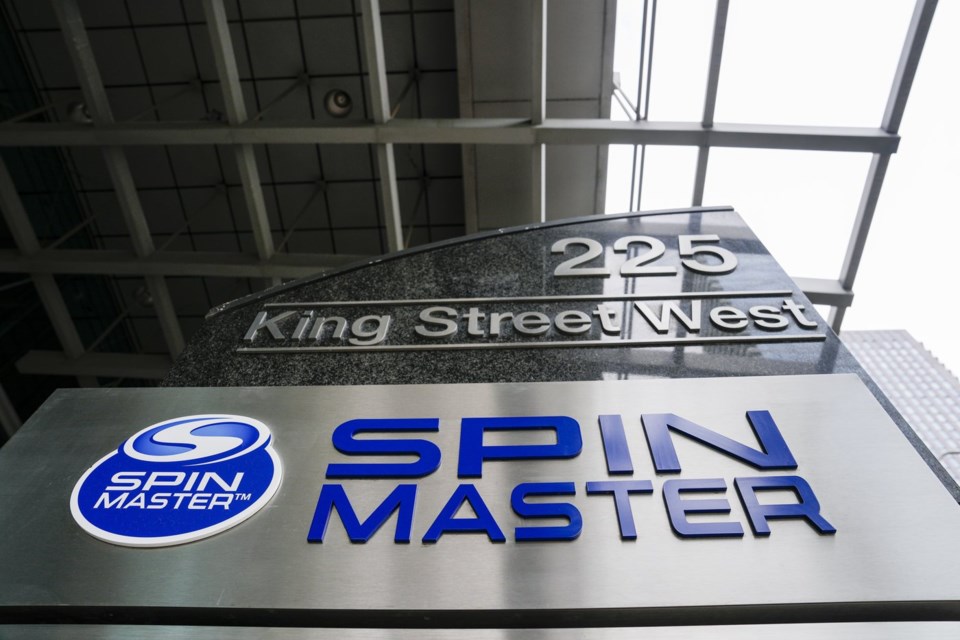TORONTO — Spin Master Corp. is starting to feel the weight of tariffs and is bracing for more uncertainty as its key holiday season nears.
Executives say the Toronto-based toy maker has seen levies threatened and imposed by the U.S. increase production costs and cause retailers to pause purchases and consumers to rein in spending.
"How the consumer reacts on the back half of the year? I think that's still a question mark," said chief financial officer Jonathan Roiter on a call with analysts Thursday.
"There could just be less dollars available for them as they're working through potentially higher prices across our large basket of goods, not just on the toy side."
Roiter's remarks came as Spin Master, which reports in U.S. dollars, said it lost US$46.5 million in the second quarter, compared with a loss of US$24.5 million in the same quarter last year.
On an adjusted basis, the company said it lost US$7.4 million, or seven cents per diluted share in the quarter, compared with a US$9.6 million adjusted profit, or nine cents per share, in the period last year.
Revenue dropped to US$400.7 million in the quarter from US$412 million over the same period the year before as buyers reacted to tariffs, CEO Christina Miller said.
The results cover a quarter when the U.S. was imposing new tariffs on several countries the company relies on for production as well as its home nation, Canada.
Spin Master is expecting the second half of the year to continue to be hampered by tariffs.
"When you think of tariffs, you've got to think of two functions: There is the actual tariff cost, and then there is the change in retailer behaviour, and obviously how the consumer behaves," said Roiter.
He said the company expects retailers will stockpile less inventory as they finish the year. Meanwhile, consumers may be more careful with spending.
Roiter said tariffs are likely to cost the business US$90 million this year, but it has implemented some cost savings, amounting to between US$60 million and US$65 million.
"The tariffs ultimately are transitory. I mean we have to work through it," he said. "We still don't know the official rate yet for one of our larger manufacturing hubs but once we have that and once there's clarity, then we can start executing against our plan."
The company said it's expecting to recover about 80 to 85 per cent of the increased costs through its pricing.
Spin Master has also been drastically reducing its reliance on China for production.
Last year, the company said 64 per cent of the cost of producing toys for the U.S. market stemmed from China. This year, that number is going to drop to 37 per cent, Roiter said.
A portion of that is being diverted to other countries, including Vietnam, India and Indonesia.
Spin Master chose once again not to provide an outlook to investors, months after withdrawing its forecast amid growing uncertainty from U.S. President Donald Trump's global trade war.
Roiter said the guidance depends on three factors: tariffs, retailers' buying patterns and consumer reaction.
"We're probably a week away from having some clarity," Roiter said.
Several countries, including Canada, are continuing negotiations on a trade deal with the U.S.
This report by The Canadian Press was first published July 31, 2025.
Companies in this story: (TSX: TOY)
Ritika Dubey, The Canadian Press



